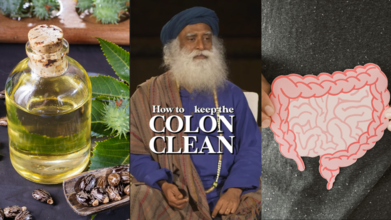- Health Conditions A-Z
- Health & Wellness
- Nutrition
- Fitness
- Health News
- Ayurveda
- Videos
- Medicine A-Z
- Parenting
- Web Stories
Struggling To Conceive? This Ayurvedic Fertility Plan Can Boost Your Chances Of Getting Pregnant

Credits: Canva
Fertility struggles are among the most emotionally taxing and physically draining experiences a couple can go through. While medical science has advanced to offer high-tech solutions like IVF and IUI, an increasing number of individuals are seeking holistic alternatives that nurture the body from within. Ayurveda, the ancient Indian system of medicine, offers just that—a deeply rooted, natural and time-tested fertility support plan.
This feature explores how Ayurveda views fertility, why it may be a viable option for couples trying to conceive, and how it can be integrated with or even before pursuing modern reproductive technologies. The goal is not just conception, but preparing both body and mind for a healthier, happier journey into parenthood.
In Ayurveda, fertility is seen as a reflection of a person’s overall health—mental, emotional, physical, and spiritual. Rather than isolating the reproductive system, Ayurveda considers the entire body as a dynamic ecosystem where imbalances in any area can impact conception.
The foundational Ayurvedic concept of Garbha Sambhava Samagri outlines four essential pillars for successful conception:
Rutu (Timing): Refers to hormonal balance and the right physiological window for conception.
Kshetra (Field): The health and readiness of the reproductive organs, especially the uterus.
Ambu (Nourishment): The strength of digestion, nutrient absorption, and blood supply.
Beeja (Seed): The quality of the sperm and ovum.
When these factors align harmoniously, the chances of conception increase naturally.
Dr. Rohit Sane, an Ayurvedic doctor and wellness expert, shares the story of Meera and Rohan, a couple who turned to Ayurveda after five years of failed attempts at conception. “They had tried everything,” he recalls. “But what struck Meera most was how no one talked about preparing the body before conception.”
Through a customized plan involving detoxification (Panchakarma), uterine cleansing (Uttar Basti), and stress-relieving therapies like Shirodhara, the couple saw transformative changes. Meera’s menstrual cycles normalized, Rohan’s stress and blood sugar levels improved, and within four months, they conceived.
“Ayurveda doesn’t treat infertility,” Dr. Sane emphasizes. “It restores the natural ability to conceive.”
Why Modern Couples Are Turning to Ayurveda for Fertility Support?
Modern lifestyles—irregular diets, chronic stress, exposure to pollutants, and sedentary routines—create imbalances in the body’s doshas (Vata, Pitta, and Kapha), which can directly impair reproductive health. Ayurveda offers:
- A natural, non-invasive approach
- Customized treatments based on individual constitution
- Long-term health improvements that benefit both parents and child
Many couples now opt to try Ayurvedic approaches either before exploring clinical treatments or in conjunction with them for better outcomes.
Ayurvedic Diet for Fertility
Diet is a cornerstone of Ayurvedic fertility care. The focus is on strengthening digestion (Agni), eliminating toxins (Ama), and building reproductive tissue (Shukra Dhatu). Key recommendations include:
Warm, Freshly Cooked Foods
These stabilize Vata dosha and enhance digestion. Think soups, stews, and steamed vegetables.
Healthy Fats
Ghee is a revered fertility food, known to deeply nourish the tissues. Sesame and coconut oils are also beneficial.
Proteins
Lentils, legumes, paneer, and moderate amounts of organic meat or fish are vital for tissue regeneration.
Spices
Cumin, fennel, turmeric, cinnamon, and especially ginger help kindle digestive fire and purify the system.
Avoid cold drinks, processed foods, and excess sugar—all of which weaken the reproductive system.
Sample Daily Meal Plan
Morning: Warm lemon water; porridge made with milk, cinnamon, and cardamom
Lunch: Rice, lentil dal, sautéed greens, and ghee
Afternoon: Herbal tea with soaked almonds or dates
Dinner: Light soup, whole-grain chapati, and steamed vegetables
Ayurvedic Herbs That Support Fertility Naturally
Herbs in Ayurveda aren’t just supplements—they are considered potent allies that balance doshas, strengthen reproductive health, and calm the nervous system. Some commonly used herbs include:
Ashwagandha: Helps balance cortisol and supports hormonal function
Shatavari: Known as the "queen of herbs" for female reproductive health
Guduchi: Detoxifies the body and boosts immunity
Kapikacchu: Enhances sperm count and motility in men
Gokshura: Supports hormone regulation and sexual vitality
Lodhra: Tones the uterus and regulates menstruation
Note: Always consult a qualified Ayurvedic practitioner for dosage and suitability.
Specialized Ayurvedic Treatments for Fertility
Besides herbal remedies and dietary changes, Ayurveda offers powerful therapies:
Panchakarma: A detoxification process to remove toxins and reset body functions
Uttar Basti: Medicated oil enema therapy focused on uterine health
Shirodhara: A mind-calming therapy to reduce stress and balance the endocrine system
Sharir Shodhan: A full-body cleanse to correct metabolic and hormonal imbalances
The Hidden Connection Between Stress, Hormones, and Fertility
One of the silent saboteurs of fertility is stress. Elevated cortisol levels interfere with ovulation, libido, and sperm quality. Ayurvedic therapies like meditation, yoga, Pranayama, and Shirodhara not only reduce stress but also recalibrate the hypothalamus-pituitary-ovarian (HPO) axis.
Sleep, too, plays a critical role. Ayurveda recommends a regular sleep schedule, oil massages (Abhyanga), and herbal teas to support restful sleep and hormonal balance.
Integrating Ayurveda with Modern Fertility Treatments
Many fertility clinics are now recognizing the value of integrating Ayurveda into their protocols. By combining traditional and modern approaches, couples can optimize their chances of success while improving their overall health.
For example, Ayurvedic detox and strengthening can precede IVF to prepare the uterine environment and enhance egg quality. Similarly, post-fertility-treatment support with herbs and diet can promote implantation and sustain pregnancy.
Final Thoughts: Fertility as a Journey of Wholeness
Fertility is not just a physical process—it is a state of readiness, balance, and vitality across body, mind, and soul. Whether you are just starting your family planning journey or have faced multiple setbacks, Ayurveda offers a gentle yet profound way to support your path.
As Dr. Rohit Sane says, “True fertility lies not just in the womb but in complete health. Ayurveda doesn’t promise miracles—but it can certainly help you reclaim your body’s natural potential to create life.”
Dr Rohit Madhav Sane is a Ayurvedic doctor and founder of Madhavbaug in India
‘Drink Castor Oil To Cleanse Your Colon,’ Says Sadhguru, But Science Isn’t Convinced

Credits: Canva and Instagram
Recently, spiritual guru Sadhguru sparked curiosity by recommending a traditional practice from Southern India: drinking half a spoon of warm castor oil mixed in water or milk every night.
According to him, this keeps the colon clean and activates the lymphatic system.
But is there any science behind this nightly ritual?
We spoke to Edwina Raj, Head of Services, Clinical Nutrition & Dietetics at Aster CMI Hospital, Bangalore, to decode the facts.
Castor Oil: Traditional Remedy or Gut Dependency?
Castor oil has been used in Ayurvedic and traditional medicine for years as a natural remedy for constipation. But does that mean it’s safe or effective for daily use?
“Castor oil is approved by the US Food and Drug Administration (FDA), as a stimulant laxative, and modern science sees it mainly as a short-term solution for constipation,” says Raj. She cautions that using it daily, even in small amounts, can lead to dependence. “Your gut may start relying on it to function, which could eventually disrupt natural digestion and bowel movements.”
In essence, while it may help occasionally, frequent use might do more harm than good. “For long-term gut health, it’s better to focus on a high-fiber diet, adequate water intake, regular physical activity, and probiotic-rich foods.”
Morning or Night? When’s the Right Time?
Sadhguru suggested consuming castor oil at night, but nutrition experts aren’t fully convinced about the timing.
“There is a lack of clinical evidence supporting the best time to take castor oil,” Raj notes. “Castor oil typically starts working within 2 to 6 hours, so taking it late in the evening could disturb your sleep.”
She adds that consuming it right after a heavy meal could cause nausea or stomach discomfort. “It’s best taken occasionally and in small amounts, never self-administered regularly without expert advice,” she emphasizes.
Can Everyone Digest Castor Oil? Not Quite
While some people may tolerate castor oil, not everyone’s digestive system can handle it smoothly.
“People with IBS, ulcers, or other sensitive gut issues may experience cramping, bloating, nausea, or diarrhea,” Raj warns. “It stimulates the intestines, which can be harsh for vulnerable digestive systems.”
What’s more, castor oil is derived from Ricinus communis, a plant that contains a toxic compound called ricin. “Although ricin is mostly removed during oil processing, the plant’s laxative effect can interfere with absorption of other medications,” she adds.
Pregnant women should also avoid it. “Castor oil may induce premature labor contractions and is not recommended for those with inflammatory bowel conditions like Crohn’s or colitis.”
Beyond a Laxative: Are There Other Benefits?
Ayurveda often promotes castor oil as a multi-functional remedy, but what does modern science say?
“Ricinoleic acid in castor oil does have anti-inflammatory and antimicrobial properties,” Raj explains. “But these are primarily beneficial when used externally, such as in castor oil packs for skin or joint pain.”
When ingested, especially on a regular basis, the risks may outweigh the benefits. “There is limited scientific evidence supporting long-term internal use of castor oil for general wellness.” So while ancient wisdom gives it a prominent role, it must be used with caution in modern-day routines.
Is It Safe to Consume Castor Oil Long-Term?
This is where things get tricky. While some believe a small daily dose is harmless, experts are wary.
“Long-term use, even in small doses, can lead to dependency, electrolyte imbalance, and nutrient malabsorption,” Raj warns. Diarrhea from overuse can deplete vital minerals like potassium and magnesium, leading to fatigue, dizziness, and dehydration.
She adds, “The gut may lose its natural motility, and your body may struggle to process nutrients efficiently. This could have serious consequences over time.”
Use Occasionally, and With Guidance
While Sadhguru’s recommendation draws from age-old traditions, it’s crucial to differentiate between cultural practices and evidence-based health strategies.
“Castor oil should be used as an occasional remedy, not a daily habit,” Raj concludes. “Always consult a doctor or nutritionist before adding it to your routine, especially if you have underlying conditions.”
In short, if you’re seeking better gut health, your best bet still lies in fiber, hydration, movement, and mindful eating—not in relying on nightly shots of castor oil.
Disclaimer: This article is intended for informational purposes only and should not be considered medical advice. Always consult your healthcare provider before starting any new supplement or treatment.
Tired, Bloated, Achy? Try These Safe And Effective Ayurvedic Detox Rituals During Rainy Season

Credits: Health and me
The monsoon known as Varsha Ritu or Karkidakam in Ayurveda isn’t just a seasonal shift. It’s nature’s nudge for us to slow down, recalibrate, and cleanse. While rains bring relief from summer heat, they also usher in humidity, dampness, and a spike in seasonal illnesses. According to ancient Ayurvedic wisdom, this transitional weather phase is when the body is most receptive to detoxification—if done with care.
The monsoon season might feel like the perfect time to curl up and indulge, but according to Ayurveda, this is actually the time your body craves a reset. Why? Because the sudden drop in temperature and rise in moisture throw your internal balance off-kilter—aggravating digestion, joints, skin, and immunity.
So, instead of pushing through the sluggishness with more caffeine or sugar, what if you gave your body exactly what it needs—a gentle, nourishing detox that clears the fog without draining your energy?
“Unlike summer, when the body is already exhausted by heat, the rainy season brings a sudden atmospheric shift that aggravates Vata dosha,” says Dr. Rohit Sane, Ayurvedic physician and CEO of Madhavbaug. “This imbalance is at the root of joint pain, indigestion, fatigue, and even respiratory discomfort.”
A detox during the rains must focus on cleansing without depletion. The goal is to reset your system gently—nourishing while eliminating.
Why Rainy Season Upsets the Body's Balance?
In Ayurveda, health is defined by the balance of three doshas: Vata (air), Pitta (fire), and Kapha (water). During monsoon, all three tend to get aggravated, throwing the body’s internal ecosystem off-kilter.
Vata aggravation affects the nervous and musculoskeletal system. Think joint pain, stiffness, sciatica, or lower back issues.
Pitta dosha flares up, targeting the skin, liver, and digestion. You might notice acne, acidity, or heat-related rashes.
Kapha imbalance causes congestion, bloating, and fluid retention. Respiratory infections, asthma, and sinus flare-ups are common.
“All three doshas being in flux at the same time makes this season unique. This is why the OPDs are full. Patients show up with everything from arthritis flare-ups to gut issues,” explains Dr. Sane.
Ayurvedic Approach to Seasonal Cleansing
Rather than crash diets or juice cleanses, Ayurveda emphasizes slow, sustainable, and constitutional detox rituals that remove Ama (toxins) while preserving Ojas—your vital energy.
1. Fasting to Rest the Gut
One of the most recommended practices during monsoon is light fasting. Especially during the month of Shravan, fasting helps the gastrointestinal system recover from inflammation and toxic buildup.
“Fasting allows the body to shift its focus from digestion to elimination,” notes Dr. Sane. “Even intermittent fasting or skipping one meal a day can offer significant relief to the GI tract.”
Choose easy-to-digest foods on eating days—think moong dal soups, rice porridge, or lightly spiced buttermilk.
2. Hydration with Intention
Waterborne infections are common during this season. Ayurveda encourages boiling water with cleansing herbs like ginger or cumin, then cooling it to room temperature before drinking.
“Always purify or boil water in this season,” warns Dr. Sane. “Contaminated water introduces toxins, which defeat the purpose of detox.”
Herbal teas and warm decoctions also support liver and kidney function, essential for internal cleansing.
3. Snehan and Swedan- Oil and Steam Therapy
The Ayurvedic duo of Snehan (oleation therapy) and Swedan (steam therapy) is especially effective during Varsha Ritu. Oil massage using warm, medicated oils calms Vata, nourishes joints, and hydrates the skin. Followed by herbal steam, the body sweats out deep-seated toxins.
“These are not just spa treatments,” says Dr. Sane. “They are therapeutic interventions. The oil pulls out fat-soluble toxins, and the steam opens up the skin’s pores to expel them.”
Regular sessions during the monsoon help reduce joint inflammation, improve circulation, and boost immunity.
4. Basti Therapy- Colon Cleanse for Vata Balance
If there’s one treatment Ayurveda considers the crown jewel of detox, it’s Basti, or medicated enemas. Especially important during Vata aggravation, Basti cleanses the colon—the seat of Vata dosha.
“Basti helps in eliminating deep-rooted toxins that no other therapy can reach. It also restores gut health, boosts nutrient absorption, and calms the mind,” explains Dr. Sane.
Under the supervision of a qualified Ayurvedic practitioner, Basti can be personalized using herbal oils or decoctions based on the individual’s constitution.
Gentle Daily Habits for Monsoon Well-Being
You don’t have to check into an Ayurvedic clinic to benefit from monsoon detox. A few mindful practices at home can go a long way:
- Wake up early and start your day with warm lemon water or ginger tea.
- Avoid cold, raw foods that dampen digestive fire (Agni). Opt for steamed or sautéed seasonal vegetables.
- Wear breathable cotton clothing and keep your feet dry to avoid fungal infections.
- Add spices like turmeric, cinnamon, and cumin to support digestion and immunity.
And perhaps most importantly, slow down. Ayurveda teaches that true healing happens when the body is in rest-and-digest mode—not while rushing through routines.
Detoxification is not a seasonal trend. It’s an ancient ritual of self-respect and maintenance—especially relevant in today’s toxic world. The rainy season, though often overlooked in Western wellness circles, is a golden opportunity to reset.
“Cleansing without depletion is the essence of Ayurvedic detox,” concludes Dr. Sane. “Done right, it restores balance, strengthens immunity, and sets the tone for sustained wellness through the rest of the year.” As the rain nourishes the earth outside, this is the time to cleanse gently, with wisdom—not to punish your body, but to honour it.
These Ayurvedic Herbs Could Get You Relief From Joint Pain: Here Is How To Use Them

Joint pain is a common concern that affects people across all age groups. Whether caused by ageing, autoimmune conditions like arthritis, or wear and tear from daily activity, it can significantly impact mobility and quality of life. While modern medicine often focuses on symptom management, Ayurveda takes a different approach, aiming to address the root cause by restoring internal balance using natural remedies and lifestyle changes. Among the most effective tools in Ayurvedic healing are specific herbs known for their anti-inflammatory and joint-supporting properties.
What’s Vata Got to Do With It?
In Ayurvedic lingo, your body is ruled by three doshas — Vata, Pitta and Kapha. Joint pain? It is Vata dosha. This dosha is linked to all things dry, cold and mobile. When it goes off balance, it turns your joints into squeaky, rusty hinges. Ayurveda’s goal? Calm that chaotic wind energy down, re-lube your inner machinery, and get you moving without sounding like a haunted house door.
Here are five herbs that could rescue your joints from all the pain.
Turmeric
Turmeric adds colour to your curry, fights inflammation, and has a reputation for making your joints feel less like they’re on fire. What works is curcumin, its active compound, which basically tells swelling and stiffness to sit down and shut up. Stir some into warm milk; you could add a pinch of black pepper, toss it into your dal, or pop a supplement if you want. Remember, everything in moderation only.
Ashwagandha
Ashwagandha doesn’t come for your joints directly; it comes for the root cause that’s making them worse. This adaptogen helps you stress less, sleep better, and stop clenching your jaw every time someone says “deadline.” Since stress ramps up inflammation, Ashwagandha’s calm-down effect can actually help your joints breathe a sigh of relief. Mix the powder into smoothies, sip the tea, or go the easy route with capsules.
Boswellia
Boswellia sounds like a perfume, but it's actually tree sap, and it's here to kick inflammation out. It works by blocking the enzymes that stir up trouble in your joints. Particularly helpful if you’re dealing with osteoarthritis or its angry cousin, rheumatoid arthritis.
Ginger
Ginger isn't just for your chai. It’s got serious joint-healing capability due to compounds called gingerols. These help reduce pain, increase circulation, and add a little heat to your system. Brew it into tea, grate it into soups, or chew on it raw if you’re feeling brave and have zero taste buds left.
Guggul
This resin is rich in guggulsterones, which help reduce inflammation and keep your joints nice and juicy. You’ll usually find it in capsule form. Just make sure it’s high-quality stuff, not bargain-bin leftovers.
Don’t Forget the Life Bits
Ayurveda’s all about the whole picture. Herbs help, but you’ve also got to treat your joints like any other vital organ:
- Eat warm, moist food: Think khichdi, soups, and ghee-drizzled veggies. Avoid anything that feels like it came straight out of a freezer aisle.
- Move gently but often: Yoga, swimming or even a slow walk will do. Your joints are like cranky cats — they don’t like sudden movement but hate being ignored.
- Sleep like it’s your job: Seriously. Deep rest helps your body do behind-the-scenes repair work.
- Breathe and decompress: Stress is basically Vata’s bestie. Break them up with meditation, breathwork or whatever helps you stop clenching your shoulders like they owe you money.
Ayurveda doesn’t hand you a quick fix; it hands you a warm cup of tea and a gentle nudge toward balance. These herbs won’t magically turn you into a human pretzel overnight, but give them time, pair them with mindful habits, and you might just stop groaning every time you bend down to tie your shoes.
© 2024 Bennett, Coleman & Company Limited

